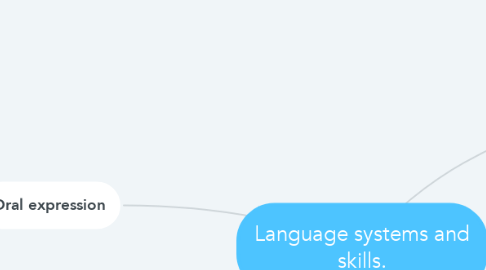Language systems and skills.
by ANAYELI HERRERA

1. These skills are listening (listening comprehension), speaking (speaking), reading (reading comprehension), and writing (written expression).
2. Auditive comprehension
2.1. Listening comprehension is understanding what is heard. Listening and it is the first linguistic skill that we acquire in our mother tongue. It is what is known as a receptive ability, or a passive ability, since it requires us to use our ears and our brains to understand language as it is spoken to us. It is the first of two natural language skills, which are required by all spoken natural languages.
3. Oral expression
3.1. Oral expression is expressing yourself correctly. Speaking is the second language we acquire in our mother tongue. It is what is known as a productive skill, or an active skill, since it requires us to use our vocal tract and our brain to correctly produce language through sound. It is the second of two natural language skills.
4. Reading comprehension
4.1. Reading comprehension is understanding what one reads. Reading is the third language skill that we can acquire in our mother tongue. As with listening, it is a receptive or passive skill, requiring us to use our eyes and brain to understand the written equivalent of spoken language. It is one of the two skills of artificial language, since not all spoken natural languages have a writing system.
5. Written expression
5.1. Written expression is knowing how to write correctly. Writing is the fourth language skill that we can acquire in our mother tongue. As with speech, it is a productive or active skill, as it requires us to use our hands and our brains to produce the written symbols that represent our spoken language. Along with reading, it is one of the two artificial language skills, as not all spoken natural languages have a writing system.
6. Linguistic micro-skills
6.1. Micro skills consist of using the context to give meaning to the word. This is why language skills need these micro skills to be successful. They often fail due to a lack of specific habits, coherent behaviors, a lack of will or previous exercise. Morphology. It is the part where you have to fluently recognize words, phrases and their meanings. Use context to give words meaning. Lexicon. It is used to recognize and distinguish the different letters of the alphabet and to know how words should be pronounced. Syntax. It is the part of grammar that teaches how to coordinate and match words to form sentences and express contexts.


